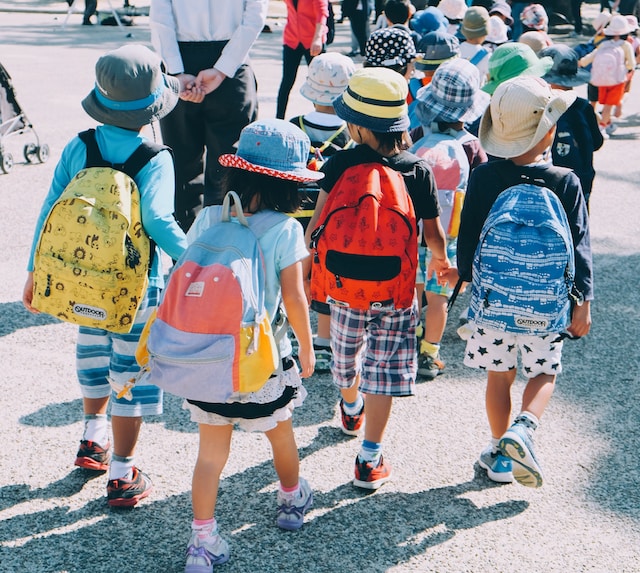Children in Belize typically attend school until the age of 14. There are plenty of education options available, including private schools geared specifically toward expat families that can be found in cities like Belize City and Ambergris Caye.
Following British education models, secondary schooling involves four single year “forms”, followed by the optional two-year sixth form – similar to junior college in the U.S.
Public Schools
Belize boasts a basic public school system funded largely by government funds with some contributions from NGOs, churches, and student fees. Student-to-teacher ratio is high with 23 primary school pupils per primary teacher and 16 per secondary teacher despite these challenges; nonetheless some progress has been made; For instance the Belizean government has been trying to promote innovation and change by providing free Internet connections of up to 256 kbit/s for school use.
Belizean education follows a British model that it adopted during its time as a British colony (known then as British Honduras). While attendance at elementary schools is compulsory for children ages 6-14, students often drop out before then due to financial strain imposed by school uniforms and books required of them; many turn instead to child labor as an income stream.
Students wishing to enroll in secondary schools must pass a competitive admissions test; however, even with this step many Belizean children remain unable to access higher education as teachers only make around $1,000 monthly and school costs include books and fees that can exceed this sum.
Most expats choose private schools in Belize for their children’s education, typically located near areas with larger expat populations such as San Pedro on Ambergris Caye or Belize City. Some private schools even offer the International Baccalaureate which serves as an entrance qualification for postsecondary studies.
As well as these educational options in Belize, some families also opt to homeschool their children at home. This option can be especially advantageous for families with children with special needs or those seeking an American-inspired curriculum.
Belize has quickly become an attractive choice for expats due to its attractive lifestyle and low costs of living, making schools in Belize overcrowded. Parents should inquire early about enrollment options at schools with high demand; additionally, be mindful that some close for several weeks during holiday periods.
Private Schools
An increasing number of expat parents are opting to send their children to international schools in Belize. These schools typically cater to an international student body, offering curriculum models from countries like the U.S., UK, France or Australia/New Zealand as models for education. Students may learn languages like English, French Spanish or German at these international institutions with some being accredited with internationally-recognized accreditation such as International Baccalaureate accreditation.
Belize’s public school system is an approximation of the British model inherited during colonial times. Enrollment in primary school is mandatory between ages 6-14; however attendance rates remain low as families struggle to pay uniforms, books, and annual fees for enrolling their children in these institutions. Teachers tend to be underpaid while schools in rural areas often lack adequate facilities and resources.
Many Belizean students don’t make it past primary school. Even those who do attend may face difficulty due to its challenging curriculum requiring passing scores on competitive exams. A sixth form course similar to junior college is also available, though students who hope to attend an elite university must study abroad.
Though public education in Belize may present unique challenges, more children than ever before are now having access to quality schools through various initiatives. Girls particularly are experiencing greater equality upon entry to school – breaking traditional gender barriers that might keep them out of the workforce and in poverty otherwise.
As well as public and private schools, there are various technical training colleges across the island that offer Caribbean vocational qualifications such as construction, agriculture and other trades.
International Schools
With Belize’s growing popularity comes an increase in international schools geared toward expat communities. These offer curriculums easily transferrable across borders. Language options usually include English, French and Spanish with German and Japanese also offered at some schools. Some offer holistic approaches with focus on mindfulness yoga and healthy living for a more holistic education approach that is internationally accepted while still respecting cultural identity – these schools may be great choices for those wanting to give their children internationalized schooling while still maintaining cultural identity if homeschooling.
Belize provides citizens with free education, with church-based schools accounting for most of their education needs. Non-citizen students typically pay fees that cover salaries and supplies; fees tend to be higher at private schools catering specifically to expat communities.
The Belizean government has made efforts to enhance education quality across its nation, yet some challenges still persist. Funding issues remain as an impediment to providing access to education; additionally, high costs associated with books and uniforms have caused low attendance rates due to struggling parents trying to afford the costs. Furthermore, poor neighborhoods often feel unsafe for sending their children off to school.
Despite these challenges, Belizeans tend to be well educated; many continue on to attend college and universities in other countries. Belize hopes to create a more globalized and competitive economy and education will be vital in that effort.
Foreign investment has contributed significantly to improving public education, but more must be done. With population growth and more people moving into the country, sufficient resources must be made available in order to meet the demand for quality education – including providing essential resources for those most in need of it.
Homeschooling
Belize is known as an “island time” country due to its relaxed lifestyle. This makes Belize an excellent option for people not working or seeking retirement who wish to live comfortably on fixed income. Many expats choose Belize with children due to its high quality of life; if your child requires special educational support you will need to locate suitable schools.
Homeschooling is legal in Belize under certain restrictions. Children who cannot attend a traditional school setting may be taught at home by accredited teachers using foreign curriculums; additionally, this arrangement must be reported to the Ministry of Education and passed with annual exams.
Private international schools are another excellent option for expat parents who want their children to remain familiar with a familiar system, with the Ministry of Education’s oversight and instruction in English. Since space in private schools in Belize can be limited, it is wise to make plans early on for your children’s education as soon as you know you will be moving there.
Belize generally enjoys a low crime rate compared to most Central American nations, though theft remains an issue; violent crimes are generally rare. While this should not be seen as negative, visitors should keep in mind that certain areas are known for higher levels of criminality than others.
To gain the most insight into living in Belize, the best way is to connect with other expats who have already made the move. There are various Facebook groups dedicated to different regions which can give an excellent idea of what awaits when moving abroad. Furthermore, real estate websites such as Wise Agent allow you to communicate directly with local expats for further questions and knowledge of an area before relocating there yourself.




